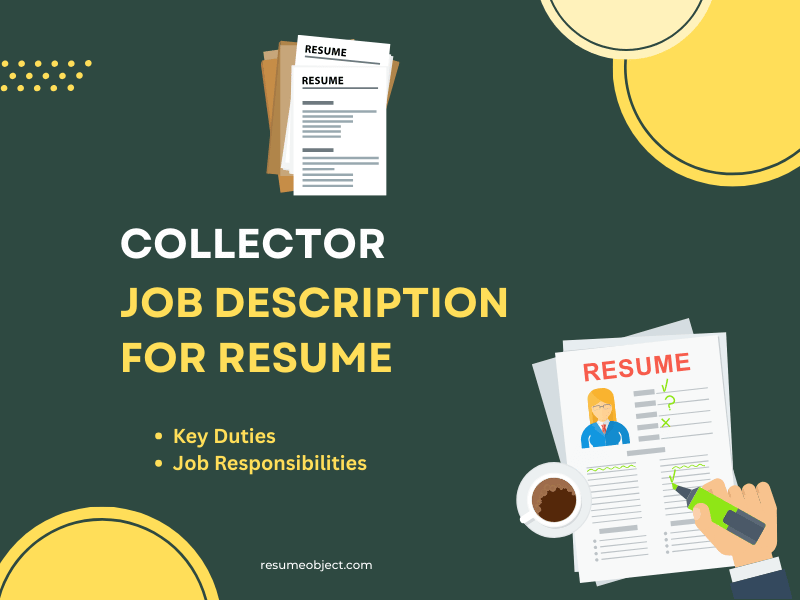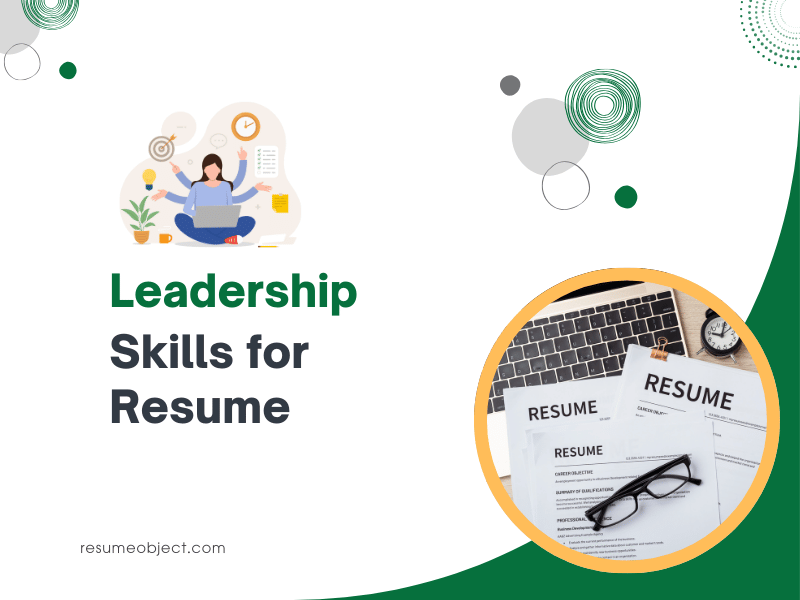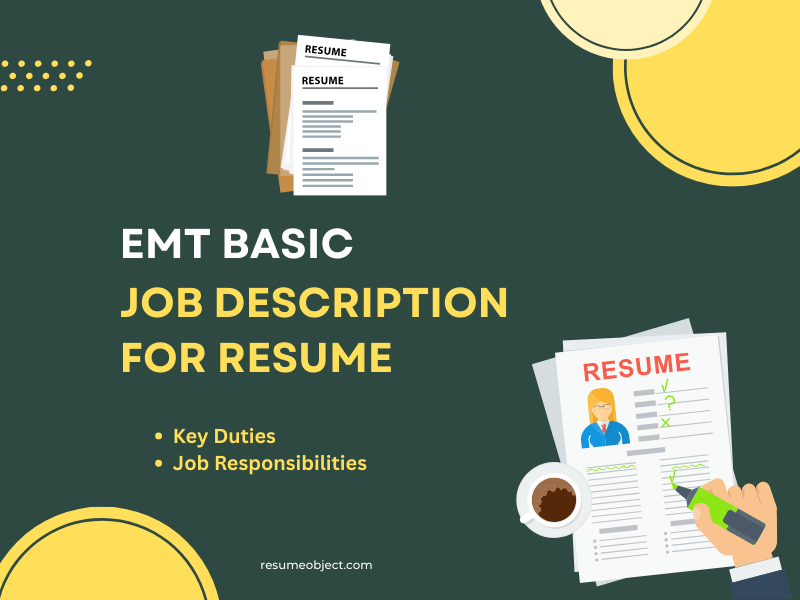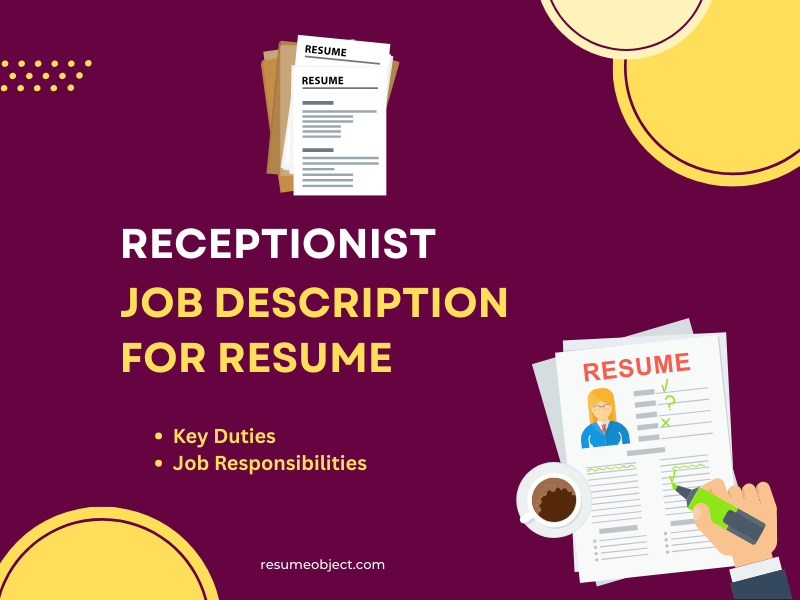Soft skills like communication, teamwork, and problem-solving are highly valued by employers, but listing them on a resume can often come across as generic or unconvincing. Phrases like “team player” or “strong communicator” are so common that they lose impact, failing to differentiate you from other candidates.
At ResumeObject, we’re committed to helping job seekers craft standout resumes with free templates, samples, and guides. This in-depth guide explains how to include soft skills in your resume effectively, ensuring they are specific, relevant, and compelling to hiring managers and applicant tracking systems (ATS).
Why Soft Skills Matter on a Resume
Soft skills are interpersonal and behavioral attributes that enable you to work effectively with others and adapt to workplace challenges. Unlike hard skills (e.g., coding in Python or accounting), soft skills are harder to quantify but critical to workplace success. A 2024 LinkedIn survey found that 92% of hiring managers consider soft skills as important as or more important than technical skills, particularly for roles requiring collaboration, leadership, or customer interaction.
Including soft skills on your resume:
- Demonstrates Fit: Shows you align with the company’s culture and team dynamics.
- Enhances Hard Skills: Complements technical abilities, e.g., communication enhances project management.
- Proves Adaptability: Highlights your ability to navigate diverse work environments.
- Passes ATS: Uses job-specific soft skill keywords to reach human reviewers.
The challenge is presenting soft skills in a way that feels authentic and impactful, avoiding generic terms that blend into the background.
Also Read: How to Write an Irresistible Resume Summary That Grabs Attention
Top Soft Skills Employers Look For
In today’s competitive job market, soft skills are as critical as technical expertise, with employers prioritizing candidates who demonstrate strong interpersonal and behavioral abilities. Here, we are highlighting the top soft skills employers seek can help job seekers tailor their resumes effectively. These skills, when presented with specific examples, showcase your fit for a role and enhance your application’s impact.
- Communication The ability to convey ideas clearly and effectively through verbal, written, and non-verbal methods.
- Teamwork Working collaboratively with others to achieve common goals while respecting different perspectives.
- Problem-Solving Identifying issues, analyzing possible solutions, and implementing the best course of action with sound judgment.
- Adaptability Being flexible and able to adjust to new challenges, roles, technologies, or work environments.
- Time Management Prioritizing tasks, managing deadlines, and using time efficiently to meet objectives.
- Critical Thinking Analyzing information objectively to make reasoned decisions and solve complex problems.
- Creativity Thinking outside the box to develop innovative ideas, solutions, or approaches in a variety of situations.
- Leadership Inspiring and guiding others, taking initiative, and making decisions that motivate a team or project forward.
- Work Ethic Being responsible, dedicated, and consistently putting in the effort to complete tasks with excellence.
- Emotional Intelligence Understanding and managing your own emotions while recognizing and influencing the emotions of others.
- Interpersonal Skills Building strong relationships, showing empathy, and working well with others across different roles or backgrounds.
- Conflict Resolution Managing and resolving disagreements in a constructive, respectful, and effective manner.
- Attention to Detail Being thorough and accurate in completing tasks, reviewing work, and minimizing errors.
- Decision Making Assessing options and outcomes to choose the most effective solution confidently and efficiently.
- Dependability Being trustworthy, consistent, and reliable in meeting commitments and maintaining professional standards.
Selecting the right soft skills and pairing them with results-based examples makes your resume more convincing and helps it stand out from generic applications.
How to Include Soft Skills Effectively
To showcase soft skills without sounding generic, follow these seven steps to integrate them strategically into your resume.
1. Identify Relevant Soft Skills
Review the job description to pinpoint soft skills the employer values, such as “collaboration,” “problem-solving,” or “adaptability.” Cross-reference these with your own strengths, focusing on skills you can back with evidence from past experiences.
Example: A job posting for a project coordinator might emphasize “effective communication” and “time management.”
Action: List 3-5 soft skills from the job description that align with your abilities and plan to highlight them.
2. Use Specific Examples
Instead of stating “strong communicator,” demonstrate the skill through specific examples tied to achievements. Use the STAR method (Situation, Task, Action, Result) to frame your experience, showing how the soft skill led to a positive outcome.
Example: “Facilitated cross-departmental meetings, improving project alignment and reducing delays by 20%” showcases communication and collaboration.
Action: For each soft skill, identify 1-2 examples from work, internships, or volunteer roles that illustrate its application.
3. Quantify When Possible
Quantifying soft skills adds credibility and impact. Metrics like time saved, team size, or percentage improvements make your contributions tangible, even for intangible skills like leadership or adaptability.
Example: “Resolved 95% of customer complaints through active listening, boosting satisfaction scores by 15%” quantifies problem-solving.
Action: Add numbers (e.g., “led a team of 5,” “reduced conflicts by 30%”) to at least one example per soft skill.
4. Integrate into Multiple Sections
Incorporate soft skills across your resume—work experience, summary, skills section, and even cover letters—rather than listing them in isolation. This contextual approach makes them feel organic and relevant.
Example: In the work experience section, “Negotiated with vendors, securing 10% cost reductions through effective communication” highlights negotiation skills.
Action: Distribute 2-3 soft skills across your summary, work experience, and skills section for a cohesive narrative.
5. Use Action Verbs
Start bullet points with action verbs that imply soft skills, such as “collaborated,” “mediated,” or “adapted.” This approach subtly showcases the skill while focusing on the action and result, avoiding generic descriptors.
Example: “Mediated team conflicts, improving collaboration and meeting project deadlines 10% faster” suggests conflict resolution.
Action: Compile a list of action verbs (e.g., facilitated, resolved, mentored) and use them to frame soft skill examples.
6. Avoid Clichés
Steer clear of overused phrases like “team player,” “hard worker,” or “people person.” Instead, use precise language or rephrase to reflect specific behaviors, such as “fostered team synergy” or “built strong client relationships.”
Example: Replace “team player” with “coordinated with 5 departments to streamline workflows.”
Action: Review your resume for generic terms and replace them with specific, evidence-based phrases.
7. Tailor for ATS Compatibility
Ensure your soft skills include keywords from the job description to pass ATS filters. Avoid embedding skills in graphics or tables, as ATS may not read them. Use standard section headings like “Work Experience” or “Skills.”
Example: If the job requires “stakeholder engagement,” include it in a bullet like “Enhanced stakeholder engagement, increasing project approval rates by 15%.”
Action: Paste your resume into a plain text editor to ensure ATS readability and keyword inclusion.
Examples of Soft Skills in Resume Sections
Below are examples showing how to integrate soft skills into different resume sections for various job categories, ensuring they’re specific and impactful.
Work Experience
- Customer Service Representative (Retail & Sales)
Customer Service Representative, ShopNow, Miami, FL, Jun 2021–Present- Resolved 100+ weekly customer inquiries through active listening, achieving a 95% satisfaction rate.
- Collaborated with a team of 10 to implement a new ticketing system, reducing response times by 20%.
- Adapted to high-pressure situations, maintaining professionalism during peak sales periods.
- Project Coordinator (Business & Management)
Project Coordinator, BuildEasy, Chicago, IL, Mar 2020–Present- Facilitated cross-functional team meetings, improving communication and cutting project delays by 15%.
- Mediated conflicts between stakeholders, ensuring 90% of projects met deadlines.
- Demonstrated adaptability by managing 3 simultaneous projects under tight schedules.
Resume Summary
- Marketing Assistant (Marketing & Advertising)
Creative B.A. in Marketing graduate seeking a Marketing Assistant role to apply strong collaboration skills from university projects. Coordinated with 5 teams to execute campaigns, boosting engagement by 10%. Eager to contribute innovative ideas and time management to [Company Name]. - Junior Developer (Information Technology)
Motivated B.S. in Computer Science graduate seeking a Junior Developer role to leverage problem-solving skills from coding bootcamps. Debugged 50+ issues in team projects, improving app performance by 25%. Committed to delivering efficient solutions through effective teamwork.
Skills Section
- Registered Nurse (Healthcare)
Skills: Patient-centered communication (trained 10 staff on empathy protocols), conflict resolution (resolved 80% of patient-family disputes), time management (handled 15+ patients daily). - Teacher’s Aide (Education)
Skills: Classroom collaboration (supported 20 students in group activities), adaptability (adjusted lesson plans for diverse learners), active listening (addressed 95% of student concerns).
Common Mistakes to Avoid
When including soft skills, avoid these pitfalls to maintain professionalism and impact.
- Using Generic Terms: Phrases like “good communicator” lack specificity. Use “streamlined client communication, reducing response times by 20%.”
- Listing Without Evidence: Stating “leadership skills” without examples is unconvincing. Prove it with “led a team of 5 to complete projects 10% faster.”
- Overloading Skills: Including too many soft skills dilutes focus. Limit to 3-5 key skills per resume, tailored to the job.
- Ignoring Context: Listing soft skills in a vacuum (e.g., a standalone list) feels disconnected. Integrate them into achievements or summaries.
- Neglecting ATS: Using non-standard formats or graphics can hide soft skills from ATS. Use text-based, ATS-friendly layouts.
Tips for Different Career Stages
Tailor your approach to soft skills based on your career stage:
1. Entry-Level Candidates
For recent graduates or individuals entering the workforce for the first time, soft skills help compensate for limited work experience. Hiring managers look for traits that indicate potential and adaptability.
- Communication – Showcase your ability to convey ideas clearly, both in writing and speech. Example: “Presented group projects and reports in university seminars.”
- Teamwork – Emphasize collaborative projects or extracurricular involvement. Example: “Worked in a team of five to organize a college tech fest.”
- Adaptability – Show that you’re willing to learn and handle new environments. Include internships, part-time jobs, or volunteer work that challenged your flexibility.
Tip: Use bullet points in your resume summary or experience section to demonstrate how you applied these skills in real-world scenarios.
2. Mid-Career Professionals
Professionals with several years of experience must blend technical expertise with mature interpersonal skills that reflect leadership and responsibility.
- Problem-Solving – Employers expect examples of resolving workplace challenges. Example: “Resolved client delivery delays by improving cross-team coordination.”
- Time Management – Emphasize multitasking or meeting tight deadlines in past roles.
- Collaboration – Describe your contributions to cross-functional teams or large-scale initiatives.
Tip: Link soft skills with measurable outcomes. Instead of saying “good at teamwork,” use “collaborated with design and development teams to launch product updates 15% ahead of schedule.”
3. Career Changers
Transitioning into a new field? Highlight transferable soft skills that bridge your past roles with your future aspirations.
- Adaptability – Stress how you’ve succeeded in new or unfamiliar settings. Example: “Quickly adapted to a customer-facing role after years in backend support.”
- Critical Thinking – Demonstrate how your previous industry knowledge can be leveraged to solve new challenges.
- Initiative – Mention self-driven learning, certifications, or side projects relevant to your new field.
Tip: Use a tailored objective or summary section to frame your soft skills as assets during your career transition.
4. Senior Professionals
Senior-level candidates need to demonstrate leadership, strategic thinking, and mentorship qualities.
- Leadership – Mention times you led teams, departments, or projects. Example: “Managed a team of 12 sales associates, increasing quarterly revenue by 20%.”
- Emotional Intelligence – Highlight your ability to navigate complex interpersonal dynamics and foster team morale.
- Decision-Making – Emphasize high-stakes decisions that impacted business outcomes.
Tip: Include soft skills within executive summaries or alongside major achievements to reinforce your leadership brand.
Customizing for Different Industries
Different industries value specific soft skills. Here’s how to tailor them:
- Information Technology: Highlight problem-solving and collaboration, e.g., “Resolved 50+ technical issues through teamwork, reducing downtime by 20%.”
- Healthcare: Emphasize empathy and communication, e.g., “Improved patient satisfaction by 15% through compassionate communication.”
- Marketing & Advertising: Focus on creativity and adaptability, e.g., “Adapted campaign strategies, increasing engagement by 25%.”
- Education: Stress classroom management and collaboration, e.g., “Coordinated with 5 teachers to enhance student engagement by 20%.”
- Finance & Accounting: Highlight attention to detail and communication, e.g., “Streamlined reporting processes, saving 10 hours weekly.”
- Business & Management: Showcase leadership and negotiation, e.g., “Led 10-person team, improving project delivery by 15%.”
Soft Skills for Entry-Level Candidates
If you lack formal work experience, draw from:
- Internships: “Collaborated with a marketing team, boosting campaign reach by 10%.”
- Volunteer Work: “Organized 5 community events, demonstrating time management.”
- Coursework Projects: “Led a group of 4 in a capstone project, improving presentation scores by 15%.”
- Extracurricular Activities: “Served as club president, enhancing teamwork for 20 members.”
Tools to Enhance Your Soft Skills Presentation
Use these tools to refine your soft skills:
- Job Description Analyzers: Jobscan identifies soft skill keywords to match job postings.
- Grammar Checkers: Grammarly ensures polished, error-free writing.
- Resume Builders: Canva or ResumeObject’s templates visualize skills in context.
- LinkedIn Profiles: Review your profile for soft skill examples to include.
Testing and Refining Your Soft Skills
After integrating soft skills:
- Get Feedback: Ask a mentor to review for specificity and relevance.
- Compare with Job Description: Ensure skills match the job’s priorities.
- Test ATS Compatibility: Paste into a plain text editor to check readability.
- Revise for Each Job: Tailor skills to highlight job-specific strengths.
Soft Skills vs. Hard Skills
Soft skills complement hard skills, creating a balanced resume:
- Hard Skills: Specific, technical abilities (e.g., “proficient in Excel”).
- Soft Skills: Behavioral traits (e.g., “collaborated to streamline Excel workflows”).
- Integration: Pair them, e.g., “Used SQL expertise and problem-solving to reduce data errors by 20%.”
Examples Across More Job Categories
Additional examples for variety:
- Business Analyst (Business & Management)
Business Analyst, DataCorp, New York, NY, Feb 2021–Present- Collaborated with 5 teams to develop dashboards, saving 10 hours weekly.
- Demonstrated adaptability by mastering new tools in 2 weeks.
- Resolved stakeholder conflicts, ensuring 90% project approval rates.
- Graphic Designer (Arts, Entertainment & Media)
Graphic Designer, CreativeStudio, Los Angeles, CA, Apr 2020–Present- Adapted designs for 10+ clients, achieving 95% satisfaction.
- Facilitated client feedback sessions, improving revisions by 20%.
- Showcased creativity in 5 branding projects, boosting engagement by 15%.
- Lab Technician (Science & Research)
Lab Technician, BioLab, Boston, MA, Jan 2022–Present- Demonstrated attention to detail, reducing experiment errors by 25%.
- Collaborated with 3 researchers, speeding up data collection by 10%.
- Adapted to new protocols, ensuring 100% compliance.
Addressing Common Concerns
- No Formal Experience: Use non-traditional roles to show soft skills, e.g., “Organized 3 fundraisers, showcasing leadership.”
- Overused Skills: Rephrase, e.g., “fostered team synergy” instead of “team player.”
- Balancing Skills: Limit to 3-5 soft skills to avoid overwhelming the reader.
Final Thoughts
Including soft skills in your resume is essential to demonstrate your fit and potential, but it requires specificity and strategy to avoid sounding generic. By identifying relevant skills, using examples, quantifying impact, and integrating them across sections, you can create a compelling narrative. Avoid clichés, tailor for ATS, and customize for your industry and career stage. At ResumeObject, we’re here to support your job search with free resources. Start crafting your standout resume today with our templates and samples!




